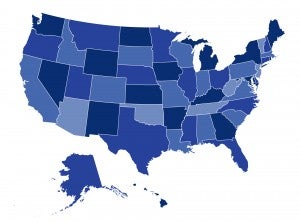2019 Insurer Participation: A “Quieter” Year As Companies Maintain, Expand Their Presence

Since implementation of the Affordable Care Act, insurer participation in the ACA marketplaces has fluctuated. As states prepare to enter their annual rate review processes for 2020, CHIR’s Emily Curran and Justin Giovannelli interviewed officials in seven of the state-based marketplaces to understand their strategies for maintaining insurer participation in 2019 and ensuring marketplace competition in the future.



